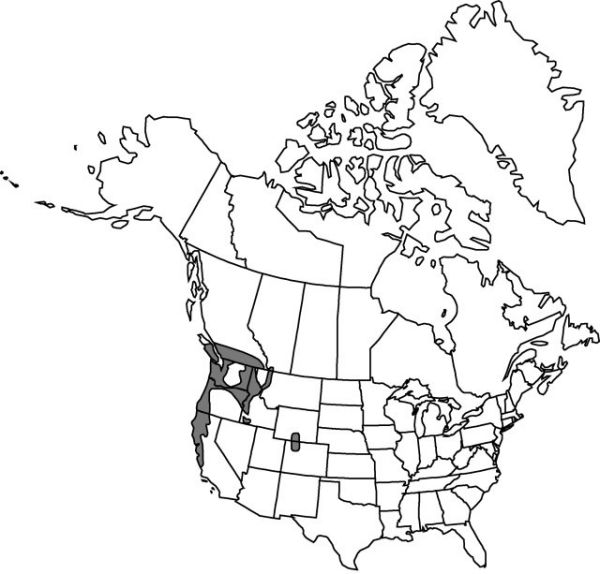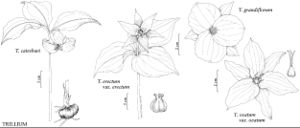Difference between revisions of "Trillium ovatum var. ovatum"
FNA>Volume Importer |
FNA>Volume Importer |
||
| Line 46: | Line 46: | ||
|publication year= | |publication year= | ||
|special status= | |special status= | ||
| − | |source xml=https://jpend@bitbucket.org/aafc-mbb/fna-data-curation.git/src/ | + | |source xml=https://jpend@bitbucket.org/aafc-mbb/fna-data-curation.git/src/f6b125a955440c0872999024f038d74684f65921/coarse_grained_fna_xml/V26/V26_106.xml |
|genus=Trillium | |genus=Trillium | ||
|subgenus=Trillium subg. Trillium | |subgenus=Trillium subg. Trillium | ||
Revision as of 19:29, 24 September 2019
Bracts sessile. Flower erect; petals lanceolate to obovate, 1.5–7 × 1–4 cm; pedicel erect.
Phenology: Flowering late winter–spring (late Feb–Apr).
Habitat: Coniferous and mixed coniferous-deciduous forests, alder thickets, shrubby areas
Elevation: 60–1600 m
Distribution

Alta., B.C., Calif., Colo., Idaho, Mont., Oreg., Wash., Wyo.
Discussion
Two forms of Trillium ovatum should be noted. Forma hibbersonii T. M. C. Taylor & Szczawinski, a dwarf, grows on sea cliffs on Vancouver Island, British Columbia. Plants range from 3 to 10 cm tall, with all parts proportionally diminished, and petals opening clear pink, fading to white. T. M. C. Taylor and A. F. Szczawinski (1974) stated that this form occurs occasionally throughout the range of the species. Forma maculosum Case & R. B. Case, with bracts blotched or spotted with dark maroon or maroon-green markings on the adaxial (but not the abaxial) surface in the manner of the sessile trilliums, and with moderate-sized flowers, is locally abundant in Mendocino County near Gualala. This is the only reported instance of maculate leaves in a pedicellate Trillium.
Selected References
None.
